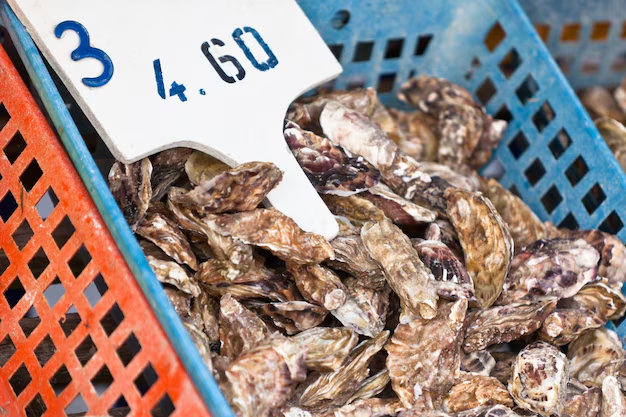How Long Can You Keep Mussels in the Refrigerator Before They're Unsafe to Eat?
Fresh seafood can be a luxurious treat, so if you've recently purchased mussels, you're probably eager to whip up a delicious meal. Yet, if you're unable to cook them immediately, understanding how long you can keep mussels in the refrigerator becomes essential. Proper storage not only reduces waste but also ensures your safety. Let’s delve into what experts suggest for keeping mussels fresh and explore some practical ways to maximize their freshness and flavor.
Why Freshness Matters in Mussels
Mussels, like many other shellfish, are highly perishable. Their freshness is critical not just for taste but for your health. Consuming stale or improperly stored mussels can lead to foodborne illnesses. Fresh mussels should not only look appealing but should also give off a mild, ocean-like aroma. An off smell is a strong indicator that something isn't right.
Signs of Fresh and Good-Quality Mussels
Before storing them, it’s important to recognize the signs of fresh mussels:
- Shell Condition: Mussels should have closed shells. If slightly open, they should close when tapped gently.
- Smell: Fresh mussels have a clean, oceanic scent. Avoid anything with a strong, fishy smell.
- Appearance: The shells should be unbroken and clean.
Optimal Refrigeration Practices for Mussels
Quick Guide: Storing Mussels Safely in Your Refrigerator
- Check for Freshness: Confirm the mussels are fresh as soon as you get them home.
- Use a Breathable Bag: Store them in a mesh or cheesecloth bag to allow for air circulation.
- Moist Environment: Cover the mussels with a damp cloth or paper towel to maintain humidity without submerging them.
- Refrigeration Temperature: The fridge should be between 34°F and 40°F (1°C to 4°C) for optimal freshness.
- Avoid Sealing Tightly: Don't store mussels in an airtight bag or container, which can suffocate them.
How long can you store them this way? Ideally, mussels should be cooked within 1 to 2 days of purchase for the best taste and safety. Longer storage raises the risk of spoilage.
Understanding Mussel Shelf Life
Factors Influencing Mussel Longevity
Several elements can impact how long mussels can be stored:
- Initial Freshness Level: If mussels are not fresh when bought, they won't last long.
- Storage Method: Adhering to recommended storage strategies markedly increases shelf life.
- Temperature Consistency: Fluctuating temperatures can accelerate spoilage.
Aging Mussels: When to Say Goodbye
Once mussels begin showing any of these signs, it’s time to discard them:
- Strong Odor: Any smell beyond fresh sea air is a red flag.
- Shells that Remain Open: If a mussel doesn’t close when tapped, it's no longer safe.
- Meat Deterioration: Slimy texture or off coloration indicates spoilage.
Preparing to Store Mussels: A Step-by-Step Guide
1. Cleaning Your Mussels
Before storage or cooking, rinsing the mussels under cold water removes any debris. Use a scrub brush to clean the shells and a paring knife to remove the "beard" if necessary.
2. Organizing Storage Space
- Choose the Right Spot: Store mussels in the coldest part of the fridge but avoid direct cold air flow to prevent drying them out.
- Consistent Temperature: Avoid storing in the fridge door where temperatures can fluctuate.
3. Checking Daily
Give a quick once-over each day to ensure no mussels are spoiling. Remember, safety first!
Maximizing Mussel Freshness: Tips and Tricks
1. Buy the Best
Purchase from a reputable seller and choose mussels that were harvested recently, which ensures higher quality and less waste.
2. Cook Promptly
If possible, plan your meals so mussels are cooked shortly after purchase.
3. Use Timely Cooking Methods
Steaming is a favored method to bring out the natural flavors while ensuring even cooking.
🌟 Quick Tip Summary:
- Air is Key: Store mussels in a breathable container.
- Keep Them Cold: Consistent refrigeration temperature is a must.
- Check for Freshness: Regularly inspect for spoilage.
- Cook Promptly: Aim to use mussels within 1 to 2 days.
Related Subtopics: Diving Deeper into Mussel Handling
Exploring Mussel Varieties
Did you know there are several types such as blue mussels and green-lipped mussels? Each offers unique flavors and textures!
The Science Behind Mussel Storage
Understanding the biological rhythm of mussels can help refine storage techniques. These shellfish are still living when you store them!
Sustainability and Mussels
Support sustainable practices by choosing farm-grown mussels which often have a lower environmental impact compared to wild harvesting.
Extend Mussel Life with Freezing
Though typically cooked fresh, mussels can be frozen if you cannot use them quickly. Cook them before freezing for the best results, as freezing raw mussels can affect their texture.
Freezing Cooked Mussels: A Simple Approach
- Cook Thoroughly: Steam or boil until fully cooked.
- Shell and Store: Remove mussels from shells and place in airtight containers with some of the cooking liquid.
- Label and Freeze: Store in the freezer for up to 3 months.
Conclusion: Keeping Mussels Fresh and Delicious
The longevity of mussels in the refrigerator revolves around knowledge of proper storage techniques, quick cooking timelines, and understanding spoilage indicators. By following these guidelines, you not only maximize their shelf life but ensure each dish is delightful and safe to consume. With this known, you can confidently plan meals that celebrate the rich taste of fresh mussels. Whether you’re enjoying them steamed with garlic and herbs or as part of a delicious seafood paella, knowing how to store them properly lets you savor every bite without worry. Enjoy the culinary journey!

